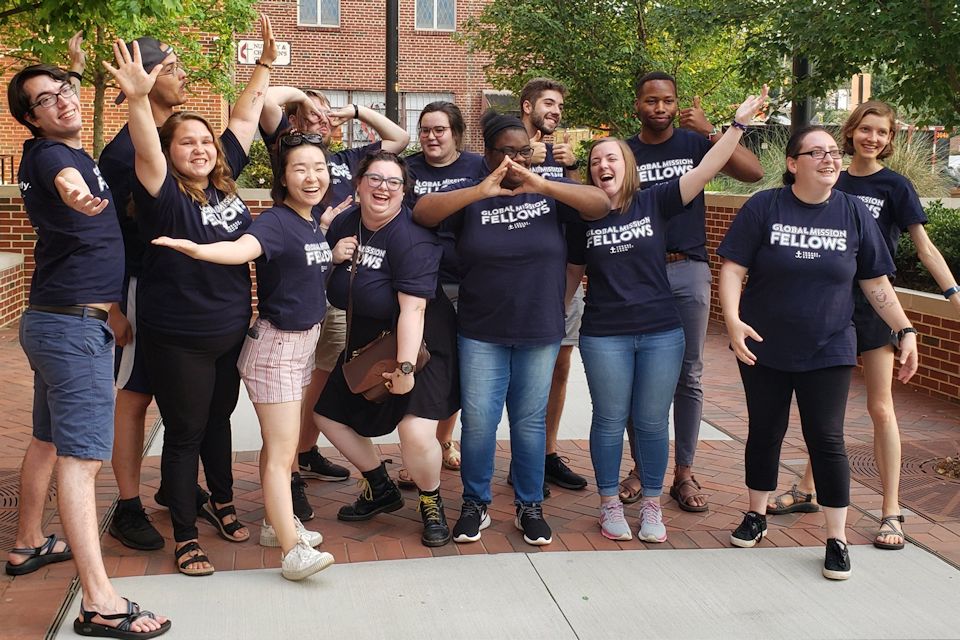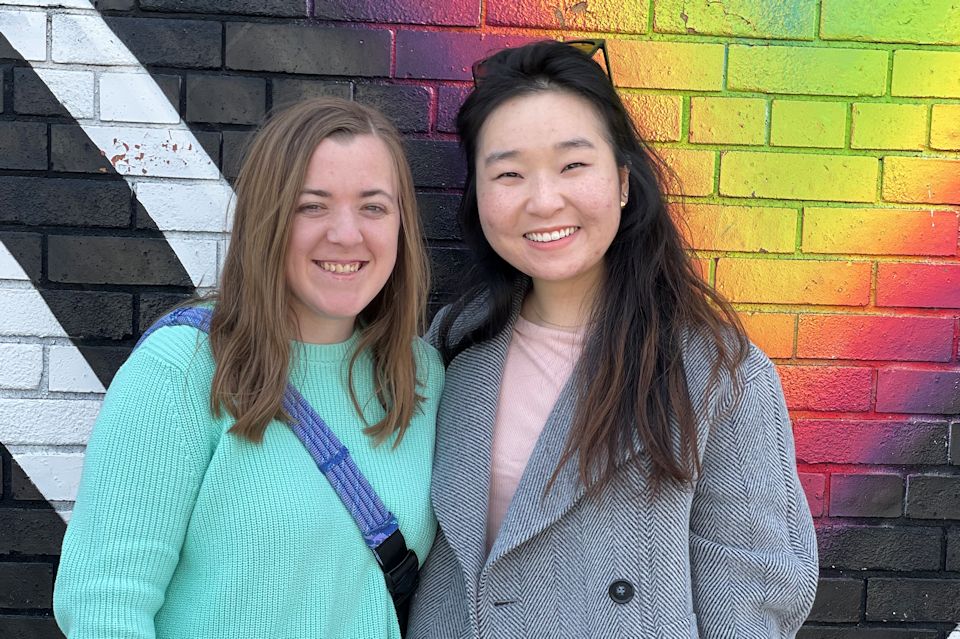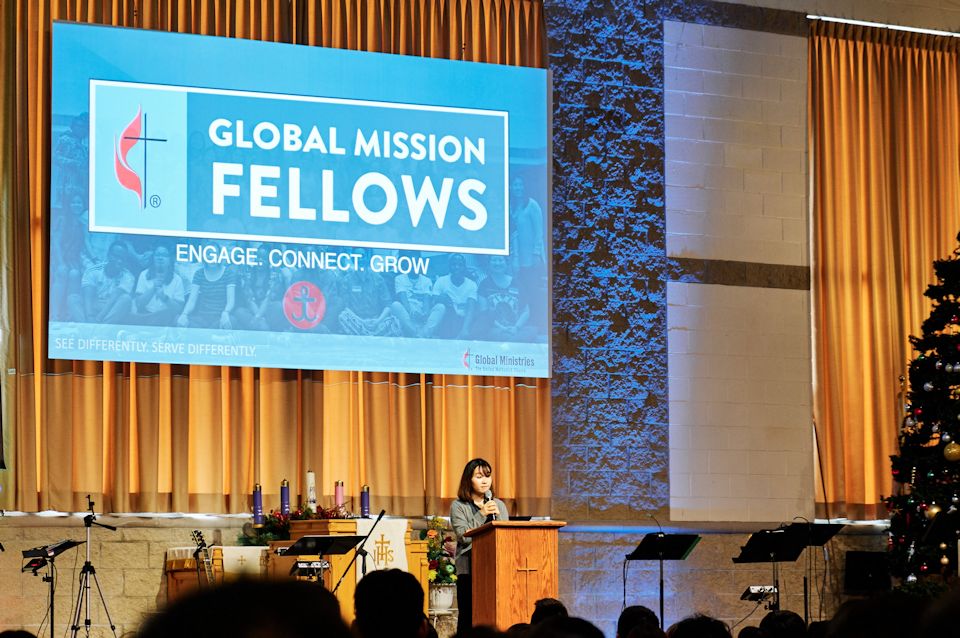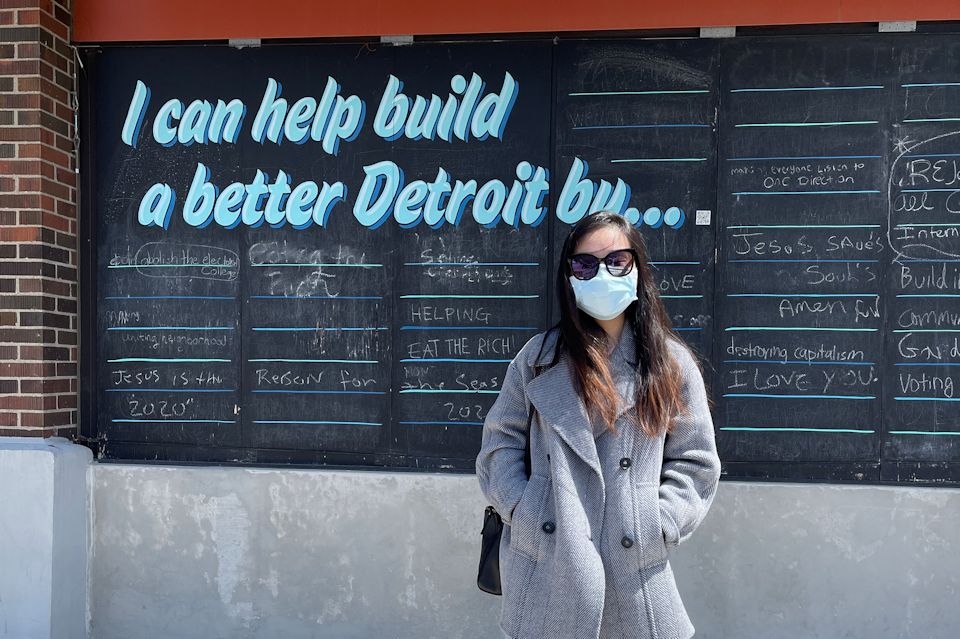Yeo Jin Yun is a US-2 serving in Detroit since August 2019. She believed she was “doing a great job juggling the different elements of pandemic living.” Then she hit “a brick wall.”
YEO JIN YUN
Global Mission Fellow
Pandemic Living. These are two words that I’m sure none of us had contemplated being part of our stories. I definitely didn’t have the word pandemic in my life’s vocabulary bank, and I certainly didn’t have them in my vocabulary bank for my time as a young adult missionary. And yet, these are the words that define this past year and my time in service, and pandemic living is not easy.
Living in a global pandemic is hard. It’s a roller coaster ride that we don’t even know how we found ourselves on. The track is long and covered with heavy fog so, it’s hard to predict what’s next. Between the loops and drops, it seems there’s no end in sight.

In those first three months of the pandemic, I chose to smile, to grin and bear it. I chose to stifle any inkling of screams, shouts, cries, or tears. After all, what would my fears, my anxieties, my anger, my stress, my grief, my feeling of displacement, and my feeling of being alone add to this situation? We were already on the roller coaster of uncertainty with no end in sight; there was no need to add to the chaos.
As someone with acts of service as her primary love language, I believed the right thing, and the best thing to do for my community, my family, and my friends was to be helpful and of use. If I sacrificed a bit of myself, made myself smaller, and brightened up the situation with positivity, I believed I was loving on my people. If I was okay, if I kept it together, if I could be alright, I believed I’d be helpful to my people.
But do you notice a pattern with my beliefs listed above? They’re all “I this” and “I that.” Where is the “we”?
I was living with fellow US-2s. Though we weren’t meeting in person, I was in community with my people in Detroit and the greater Detroit area. I was in community with my people throughout the state of Michigan, throughout the United States of America, and the world. And yet, in that first chapter of pandemic living, I found myself in a mode of “I.”
After reaching my breaking point, I took intentional time to heal and rebuild, and in this time, my eyes began to regain their 2020 vision, and I could finally see my May 2020 self. From March 2020 to May 2020, I had believed I’d been doing a great job juggling the different elements of pandemic living. And though I wasn’t an expert juggler, I thought I’d become an amateur of sorts. I threw up the fear of leaving the house as an Asian American with my right hand, eyeballed the feeling of displacement and not belonging in a city and state I had only just become able to explore floating above my head, caught the uncertainties of a novel virus that was killing people indiscriminately with my left hand, and made note of all the other feelings and thoughts caught somewhere between the air and my two hands.

However, with my refreshed, 2020 eyesight I realized that I hadn’t been juggling at all. Instead of my mental image of an adept rookie juggler, I saw someone in a small, dark, closet-like space. In the place of a door stood a brick wall. The brick of fear, the brick of displacement, the brick of not belonging, the brick of uncertainties, along with so many other bricks, had been neatly stacked atop one another with thick layers of cement in between. This door-wall of bricks was so close to the ceiling; there was only a small sliver of space where air and light traveled. This was the crevice I’d built for myself with my beliefs of “only if I could _____, then I could help everyone.”
Once back in Detroit, I was overwhelmed with the love and support of my community. My fellow US-2s at Foundry House. My supervisor and affiliate coordinator. My mentor. My church cell group.
I was surrounded by people who intentionally provided space for me to be me, fully me. It wasn’t just the bright or sassy side that was celebrated, but the ugly and hurt side was equally accepted and appreciated. I especially felt this to be the case when the anti-Asian racism and hate crimes increased. I felt comfortable enough to share with my immediate community that I didn’t necessarily feel safe going to the store by myself. Instead of being met with judgment or shame, they received my truth with love and support. I was met with, “I can go with you if that might make you feel better about getting groceries.” I was met with casual, “I’m headed to the store. Let me know if you need anything.” I was met with, “Would you like for one of us to go inside the store with you?”
It really doesn’t seem like anything, but these small words and the intentionality behind them made a world of a difference to me.
My community is not only a place of joy and laughter, but it is my place of healing and short refuge. My community is resources, my community is listeners, and my community is a space for me to be free. My community isn’t perfect, but in those perfect moments, it gives me a glimpse of what it means to be in relationship with God.

This is the community that was with me in my discernment journey. At the end of my time as a US-2, I’ll be headed to Garrett Evangelical Theological Seminary in Evanston, IL, to study Pastoral Care and Counseling. I’d never fathomed a step in mental health or seminary, but journeying with my community, I allowed myself the freedom to trust in the mysterious ways of the Spirit. My time in Detroit and being part of the Michigan Conference has inspired me and emboldened me to take this next faithful step forward in saying yes to God’s open door and the life that wants and needs to live in me.
Though we are still pandemic living in May 2021 and though there are still those bricks of fear, uncertainties, and more present in my life, I don’t find myself building a wall, blocking out the light. I don’t foresee myself juggling with these bricks at any time, and I’m okay with that. In May 2021, an exact year from my breaking point, I recognize that I’ll always have bricks around, whether it be in a chapter titled “Pandemic Living” or “Post-Pandemic Living.” I’ll also always have my community around, too.
~ Yeo Jin Yun is a Global Mission Fellow of The United Methodist Church. She was assigned by The General Board of Global Ministries to serve at the Methodist Federation For Social Action, with offices at Detroit: Central UMC. She arrived in Michigan in August of 2019 to begin her two years of service.
Last Updated on January 10, 2023

